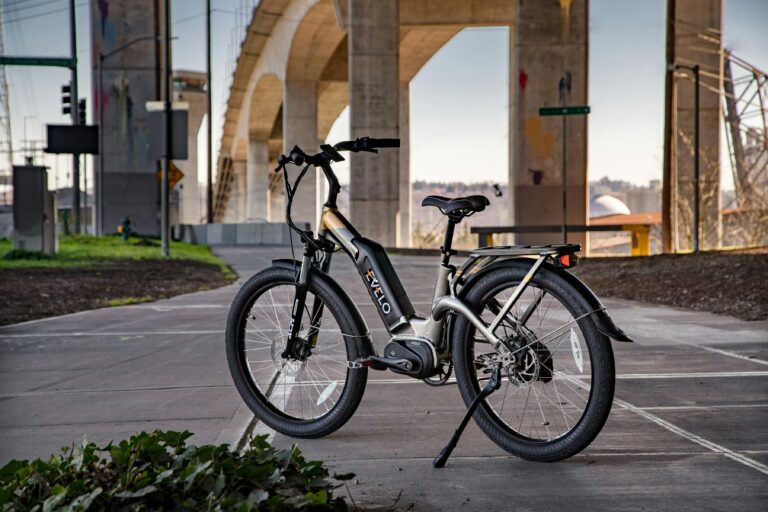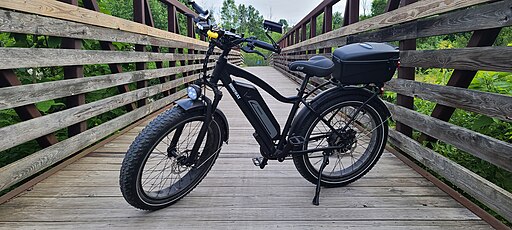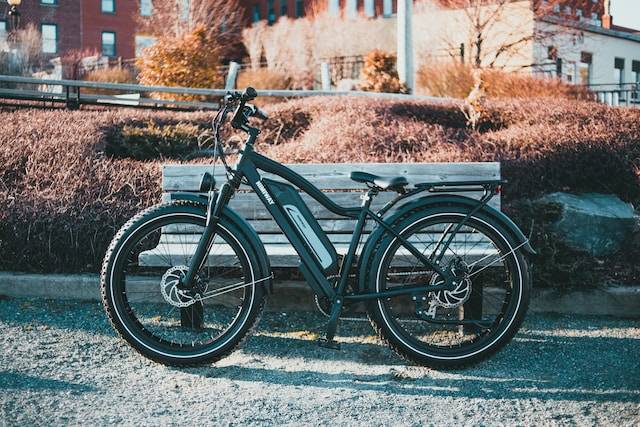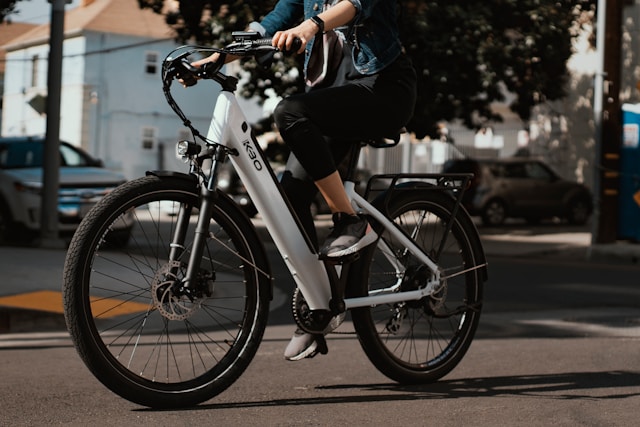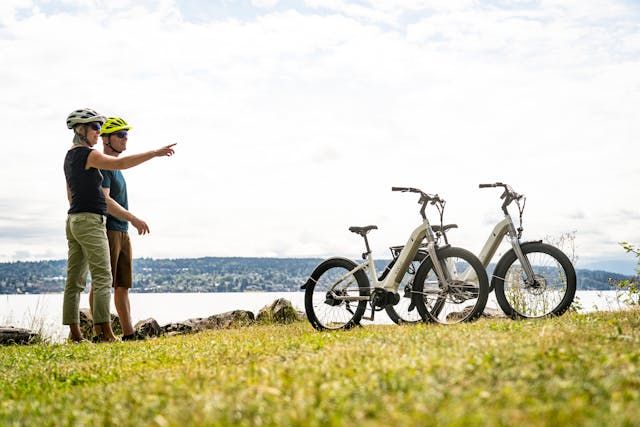Exploring Electric Bikes for Riders with Mobility Issues or Disabilities
In recent years, electric bikes (e-bikes) have emerged as a transformative mode of transportation, offering a blend of convenience, sustainability, and accessibility. However, their significance extends far beyond mere convenience, particularly for individuals grappling with mobility challenges or disabilities. This segment of the population often faces significant barriers when it comes to traditional forms of transportation, making everyday tasks and activities daunting endeavors.
The advent of electric bikes tailored for individuals with mobility issues has ushered in a new era of mobility and independence. These specialized e-bikes are ingeniously designed to accommodate a range of needs, offering features and functionalities that cater specifically to the unique requirements of riders with disabilities. From ergonomic designs to customizable controls, these electric bikes provide a newfound sense of freedom and empowerment to those who may have previously felt confined by their mobility limitations.
Moreover, the market for specialized electric bikes has experienced remarkable growth in response to the increasing demand for inclusive mobility solutions. Manufacturers and innovators are dedicating resources to research and development, striving to create e-bikes that not only meet but exceed the expectations of riders with disabilities. This surge in innovation underscores the recognition of electric bikes as more than just recreational gadgets but as indispensable tools for enhancing quality of life and promoting social inclusion.
As we delve deeper into the realm of electric bikes for individuals with mobility challenges, it becomes evident that these vehicles represent far more than just a means of getting from point A to point B. They symbolize freedom, empowerment, and the breaking down of barriers—both physical and societal. In the following sections, we will explore the various types of electric bikes designed for riders with disabilities, delve into their benefits, and equip you with the knowledge to make informed decisions about incorporating these transformative vehicles into your life.
Key Takeaways
- Electric bikes offer a viable transportation solution for individuals with mobility issues.
- Specialized electric bikes come with features tailored to the needs of riders with disabilities.
- Adaptive electric bikes provide increased accessibility and independence.
- Using electric bikes can promote physical activity and improve overall well-being.
- Researching and selecting the right electric bike is crucial for meeting individual needs.
- Consideration of factors such as comfort, stability, and ease of use is essential when choosing an electric bike.
- Regular maintenance and proper care can prolong the lifespan of electric bikes for riders with disabilities.
Understanding Electric Bikes for Mobility
Definition of Electric Bikes: Electric bikes, commonly known as e-bikes, are bicycles equipped with an electric motor that assists the rider’s pedaling efforts. Unlike traditional bicycles, which rely solely on human power, e-bikes offer varying levels of pedal assistance, augmenting the rider’s strength and making cycling easier, particularly over longer distances or challenging terrains. Electric bikes come in a range of styles, including commuter bikes, mountain bikes, and even cargo bikes, catering to diverse preferences and needs.
Explanation of How Electric Bikes Assist Riders with Mobility Issues: For individuals with mobility issues, electric bikes serve as invaluable tools for overcoming physical limitations and expanding their range of movement. The electric motor provides a boost to the rider’s pedaling, effectively reducing the amount of physical exertion required to propel the bike forward. This assistance is particularly beneficial for individuals with conditions such as arthritis, muscular dystrophy, or limited joint mobility, who may struggle with the strenuous demands of traditional cycling.
Moreover, electric bikes offer a level of flexibility and adaptability that is unparalleled by other forms of transportation. Riders can adjust the level of pedal assistance to suit their individual needs, allowing them to conserve energy during uphill climbs or exert more effort when navigating flat terrain. This customizable feature ensures that electric bikes can accommodate a wide spectrum of abilities and preferences, empowering riders to enjoy the freedom of cycling without feeling restricted by their physical limitations.
Introduction to the Concept of Adaptive Electric Bikes: Adaptive electric bikes represent a groundbreaking innovation in the realm of inclusive mobility solutions. These specialized e-bikes are meticulously designed to cater to the specific needs of riders with disabilities, incorporating a host of features and modifications to enhance comfort, stability, and accessibility. From ergonomic frame designs to adjustable seating arrangements, adaptive electric bikes are engineered to provide a safe and comfortable riding experience for individuals with diverse mobility challenges.
One of the key distinguishing factors of adaptive electric bikes is their emphasis on customization and personalization. Riders can tailor their bikes to accommodate specific mobility requirements, whether it involves adjusting the seat height, configuring the handlebar position, or installing auxiliary support features. This level of adaptability ensures that adaptive electric bikes can effectively address a wide range of disabilities, empowering riders to reclaim their independence and explore the world with newfound freedom.
RELATED CONTENT – Electric Bikes vs Electric Scooters
RELATED CONTENT – Electric Trike Basics – All You Need to Know & Recommendations
Types of Electric Bikes for Disabilities
Electric bikes have evolved beyond traditional models to cater specifically to the diverse needs of individuals with disabilities. These specialized e-bikes are meticulously crafted, incorporating innovative designs and features to enhance accessibility and usability. Let’s explore the various types of electric bikes tailored for riders with disabilities:
1. Adaptive Electric Bikes: Adaptive electric bikes are at the forefront of inclusive mobility solutions, offering customizable features to accommodate a wide range of disabilities. These bikes are designed with adjustable components such as seat height, handlebar position, and pedal assist levels, allowing riders to personalize their riding experience for optimal comfort and accessibility. Adaptive e-bikes often feature lower step-through frames for easier mounting and dismounting, as well as ergonomic controls designed for individuals with limited dexterity or strength.
2. Mobility Electric Bikes: Mobility electric bikes are specifically engineered to address the mobility challenges faced by riders with disabilities. These bikes prioritize stability, safety, and ease of use, making them ideal for individuals with limited balance or coordination. Features such as wide tires, sturdy frames, and low centers of gravity enhance stability and control, providing riders with confidence and peace of mind as they navigate various terrains and environments.
3. Customized Electric Bikes: In addition to specialized models, many electric bike manufacturers offer customization options tailored to the specific needs of riders with disabilities. These customized e-bikes may include modifications such as adjustable seating arrangements, hand-operated controls, or additional support features to accommodate unique mobility requirements. By working closely with riders and accessibility experts, manufacturers can create bespoke electric bikes that empower individuals with disabilities to reclaim their independence and mobility.
Features and Designs: Electric bikes for individuals with disabilities boast a myriad of features and designs geared towards enhancing accessibility and usability. Some common features include:
- Step-Through Frames: Lower step-through frames facilitate easy mounting and dismounting, reducing physical strain and enhancing accessibility for riders with mobility challenges.
- Ergonomic Controls: Intuitive controls designed with accessibility in mind ensure effortless operation for individuals with limited dexterity or strength.
- Stability Enhancements: Wide tires, sturdy frames, and advanced suspension systems provide enhanced stability and control, allowing riders to navigate diverse terrain with confidence.
- Adjustable Components: Adjustable seat heights, handlebar positions, and pedal assist levels enable riders to customize their riding experience to suit their individual preferences and needs.
By incorporating these features and designs, electric bikes for individuals with disabilities offer a versatile and inclusive mobility solution that empowers riders to explore the world with newfound freedom and independence.
Benefits of Specialized Electric Bicycles
Specialized electric bicycles designed for individuals with disabilities offer a multitude of advantages, transforming the way they experience mobility and independence. Let’s delve into some of the key benefits:
1. Increased Independence: One of the most profound benefits of specialized electric bicycles is the newfound independence they afford riders with disabilities. By providing a reliable and accessible mode of transportation, these e-bikes enable individuals to travel freely and autonomously, without relying on assistance from others. Whether running errands, commuting to work, or simply enjoying a leisurely ride, riders can seize control of their mobility and reclaim their sense of autonomy.
2. Improved Mobility: Specialized electric bicycles serve as a gateway to enhanced mobility, breaking down barriers and expanding the horizons of individuals with disabilities. With their intuitive controls, stability-enhancing features, and customizable designs, these e-bikes empower riders to navigate various terrains and environments with ease. From bustling city streets to rugged trails, individuals can explore new destinations and embark on adventures previously deemed inaccessible.
3. Enhanced Physical Activity: Contrary to common misconceptions, electric bicycles for individuals with disabilities promote physical activity and well-being. While the electric assistance provides a welcome boost, riders still engage in pedaling and exert effort, contributing to improved cardiovascular health, muscle strength, and overall fitness. Additionally, the ability to adjust pedal assist levels allows riders to tailor their workout intensity to match their fitness levels and preferences, making exercise both enjoyable and achievable.
4. Testimonials and Case Studies: Numerous testimonials and case studies attest to the transformative impact of specialized electric bicycles on the lives of individuals with disabilities. From personal anecdotes of newfound freedom and independence to documented improvements in physical and mental well-being, these accounts highlight the profound positive effects of incorporating e-bikes into daily life. Whether overcoming transportation barriers, achieving fitness goals, or fostering a greater sense of connection with the outdoors, specialized electric bicycles have proven instrumental in enhancing the quality of life for countless individuals with disabilities.
By harnessing the power of specialized electric bicycles, individuals with disabilities can embrace a lifestyle defined by independence, mobility, and vitality. These innovative vehicles not only facilitate practical transportation solutions but also serve as catalysts for empowerment and transformation, empowering individuals to live life to the fullest, one pedal stroke at a time.
FAQs
Q: How do adaptive electric bikes differ from regular electric bikes? A: Adaptive electric bikes are purposefully crafted to cater to the unique needs of riders with mobility issues or disabilities. Unlike regular electric bikes, adaptive models feature specialized design elements such as lower step-through frames, wider seats, and customizable controls. These adaptations enhance accessibility and usability, making it easier for individuals with disabilities to mount, operate, and enjoy their electric bikes safely and comfortably.
Q: Are there any safety concerns associated with using electric bikes for individuals with disabilities? A: Safety is a paramount consideration when it comes to utilizing electric bikes, especially for individuals with disabilities. Like any mode of transportation, electric bikes pose certain risks, but with proper precautions, these risks can be mitigated. Riders must wear appropriate protective gear, including helmets, gloves, and reflective clothing, to minimize the likelihood of injury in the event of an accident. Additionally, undergoing proper training in operating electric bikes and adhering to traffic regulations can further enhance safety for riders with disabilities.
Q: Can electric bikes be modified to better suit individual needs? A: Absolutely. One of the remarkable features of electric bikes is their adaptability and customization potential. Many electric bike models can be modified with accessories or adjustments to accommodate the specific requirements of riders with disabilities. Whether it’s installing hand-operated controls, adjusting seat heights, or adding support features, there are numerous customization options available to tailor electric bikes to individual needs. It’s advisable for individuals seeking modifications to consult with a knowledgeable dealer or technician who can provide expert guidance and assistance in making personalized adjustments to their electric bikes. With the right modifications, electric bikes can be transformed into highly tailored mobility solutions that empower individuals with disabilities to navigate the world with greater comfort, confidence, and independence.
Conclusion
In the realm of mobility solutions, electric bikes stand out as transformative tools that offer newfound freedom and independence to individuals with disabilities. By bridging the gap between accessibility and innovation, specialized electric bicycles have revolutionized the way people with mobility challenges navigate their surroundings, empowering them to explore the world with confidence and ease.
From adaptive electric bikes with customizable features to mobility-focused designs engineered for stability and control, the array of options available ensures that there’s a perfect fit for every rider’s unique needs. These electric bikes not only provide practical transportation solutions but also promote physical activity, social inclusion, and a sense of empowerment.
As we conclude our exploration of electric bikes for individuals with disabilities, we invite you to join the conversation. Share your thoughts, experiences, and questions in the comments section below. Together, let’s continue to raise awareness, foster discussion, and advocate for inclusive mobility solutions that enhance the lives of individuals with disabilities.
We’d love to hear from you! Share your experiences with electric bikes for individuals with disabilities in the comments below. Have questions or insights to add? Don’t hesitate to join the conversation. And if you found this article informative, be sure to share it with your friends, family, and community. Together, let’s spread the word about the transformative power of electric bikes for individuals with disabilities.
External Sources
https://www.mxmoto.co/blogs/electric-bike-for-disabled/
https://www.sixthreezero.com/blogs/bike-advice/a-bicycle-for-special-needs-children
https://www.nadtc.org/news/blog/e-bikes-increase-mobility-access-for-older-adults-and-people-with-disabilities/
Kristina Grant is not just an enthusiast but a true authority on electric bikes. Nestled in the coastal beauty of Virginia, Kristina has found the perfect backdrop for her passion for electric biking. As a dedicated wife and homeschooling mom, her life revolves around family, faith, and the thrill of adventure.
Originally hailing from Ohio, Kristina's journey with electric bikes began as a curiosity and quickly evolved into a deep expertise. Her blog is a testament to her love for electric biking, combining her fascination for eco-friendly transportation with her coastal lifestyle.
When she's not cruising the beach on her electric bike, you'll find Kristina indulging in her other loves: long walks along the shore, getting lost in a good book, and cherishing moments with her loved ones. With a heart as big as her love for animals, especially cats, Kristina brings a unique perspective to the electric bike world, grounded in her strong faith in God and her dedication to a sustainable lifestyle.
Through her blog, Kristina shares her extensive knowledge of electric bikes, offering valuable insights, tips, and recommendations to fellow enthusiasts. Whether you're a seasoned rider or a newcomer to the electric bike scene, Kristina's blog is your go-to source for all things electric biking, fueled by her passion, expertise, and the scenic beauty of coastal Virginia.


